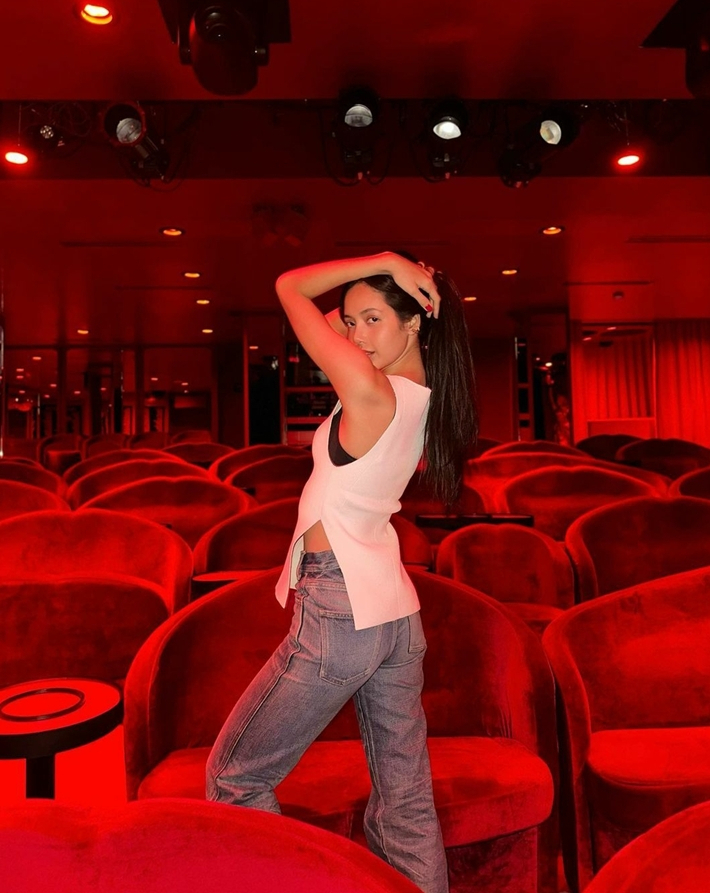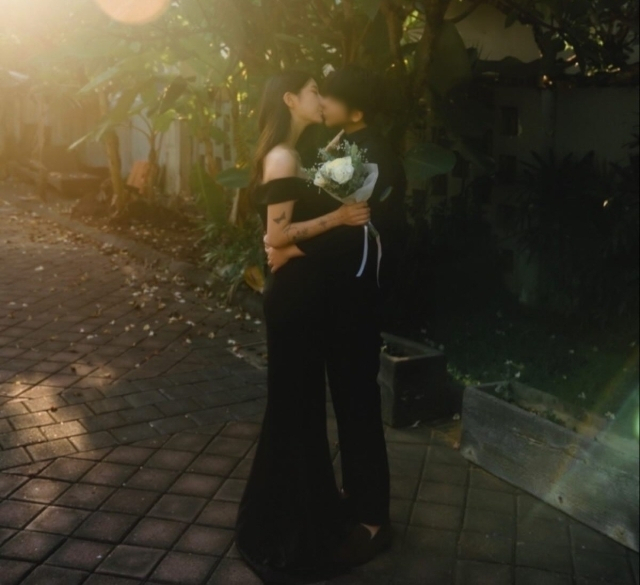 |
Lisa of Blackpink (Lisa's Instagram) |
Jiae of the now-disbanded girl group Wassup made headlines Tuesday by posting a photo with her girlfriend on social media, captioning it, “My sweet girlfriend.” Jiae had revealed her bisexuality in 2021, declaring, “I love both men and women. I have a girlfriend that I love and am very happy with.” Given the conservative nature of the Korean entertainment industry, her openness about her identity was groundbreaking.
Historically limited in their freedom of speech, K-pop idols are increasingly voicing their identities and opinions as the power dynamic shifts in their favor. Industry insiders credit social media’s influence and its role in global K-pop marketing for giving idols the confidence to share their sexual identities, bold fashion choices and views on social issues.
Lisa of Blackpink similarly sparked intense debate with her performance at the renowned Crazy Horse cabaret in Paris in September 2023.
A member of Blackpink, one of the most successful K-pop groups in history, Lisa became the first idol to perform on this iconic stage. Many fans felt that her decision to perform at Crazy Horse clashed with the traditionally wholesome image expected of idols. Her move signified a shift in how K-pop idols are approaching their own image and challenged the industry’s usual restrictions on its stars.
Pop critic Cha Woo-jin said that K-pop idols were spearheading a wave of transformation, particularly regarding expressions of sexuality.
“The traditional rules for K-pop idols are breaking down. Just look at Rose’s latest single ‘APT.,’ where she drinks and kisses Bruno Mars in the music video. We hardly ever saw a male co-star in a girl group’s video before, let alone a kiss,” Cha said.
 |
Jiae of the now-disbanded girl group Wassup is seen kissing her girlfriend in a photo posted on her social media, Tuesday (Jiae's Instagram) |
Another music critic Lim Hee-yun attributes this shift to Generation Z’s approach to communication and expression, saying, “Communication styles among younger idols have evolved. In the past, collective actions and top-down directives were the norm, but now there’s a stronger emphasis on individual freedom.”
Seungkwan of the boy group Seventeen also made waves last month by voicing disapproval of Hybe’s internal documents containing derogatory remarks about K-pop idols’ appearances that recently came to light. On social media, Seungkwan wrote, “You have no right to belittle our narratives. This goes for us and for other artists. We are not your items.” Although he didn’t name Hybe directly, fans understood his criticism was directed at the K-pop behemoth.
An official from a local entertainment agency pointed to a broader shift in power dynamics from K-pop agencies to idols due to social media. “It’s different from before. Artists now have many ways to communicate directly. For major stars, especially, it’s harder for companies to restrict their freedom of speech,” the official explained.







![[Herald Interview] How Gopizza got big in India](http://res.heraldm.com/phpwas/restmb_idxmake.php?idx=644&simg=/content/image/2024/11/20/20241120050057_0.jpg)